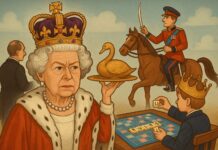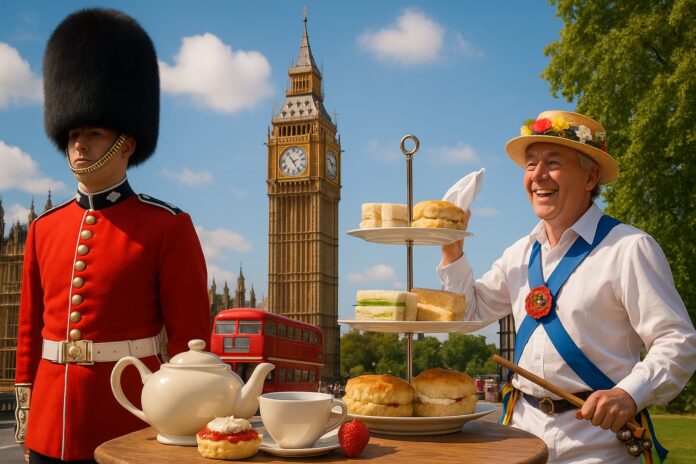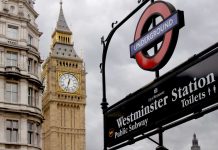From tea-drinking rituals to quirky cheese-rolling competitions, British traditions blend history, humour, and culture in ways that fascinate the world. This list reveals 20 of the most unique customs you’ll encounter in the UK—some elegant, some eccentric, and all worth knowing before your next visit.
Introduction
Britain is a land where history and modernity walk hand in hand, creating a culture rich in fascinating traditions. From the elegance of royal pageantry to the warmth of community gatherings, its customs tell stories that span centuries. Some, like afternoon tea or the Changing of the Guard, have become symbols of national pride and identity. Others, such as cheese rolling or pancake races, reflect the quirky, playful side of British life that continues to intrigue the world.
What makes these traditions remarkable is their ability to adapt and endure. Rooted in influences from Celtic, Roman, Anglo-Saxon, and Norman times, British customs have evolved with each era, blending ritual, humour, and hospitality. They highlight values of fairness, community, and continuity while offering unique experiences for locals and visitors alike. Whether in royal ceremonies, seasonal celebrations, or everyday habits, these traditions remain central to understanding what makes Britain truly distinctive.
History of British Traditions & Customs
Britain’s traditions are a layered tapestry woven from Celtic, Roman, Anglo-Saxon, Norse, and Norman influences. Pre-Christian seasonal rites such as Beltane informed later May Day festivities, while Roman administration and early Christianity introduced liturgical calendars and civic ceremony. Anglo-Saxon assemblies and local customs shaped ideas of fairness and order (think modern queuing etiquette), and Norse Yule customs coloured winter celebrations. After 1066, the Normans centralised royal ritual, embedding courtly pageantry and heraldry that still underpin events like Trooping the Colour and the Changing of the Guard. Medieval guilds, universities, and parish life added processions, feasts, and academic rites that survive in towns and colleges today.
From the Tudor Reformation to the present, traditions have continually adapted. Bonfire Night commemorates the 1605 Gunpowder Plot; Georgian and Victorian Britain codified social rituals—afternoon tea, Christmas trees (popularised in the 1840s), and crackers—while the Industrial Revolution birthed weekend leisure, pubs as civic “living rooms,” and codified sports such as cricket and football. In the 20th century, mass media cemented national moments (e.g., Remembrance Sunday), and post-war migration enriched culture with Caribbean carnivals, South Asian cuisines, and new festivals. Devolution revived Celtic languages and regional customs, while contemporary Britain balances royal pageantry with quirky local rites—cheese rolling, pancake races—showing a living tradition that blends continuity with change.
In this article, we’ll explore 35 traditions and customs that showcase the uniqueness of British life. From formal royal pageantry to unusual folk festivals, you’ll get a glimpse into the quirks and values that continue to shape the United Kingdom today.
Everyday Customs
1. Afternoon Tea
Introduced in the 19th century, afternoon tea remains one of Britain’s most refined traditions. Typically served between 3 pm and 5 pm, it includes a pot of tea, finger sandwiches, warm scones with clotted cream and jam, plus an assortment of cakes. Today, it’s both a daily ritual for some and a luxurious treat at hotels and tearooms. Visitors often see it as a must-try British experience.
2. The Queue
Queuing is more than standing in line—it’s practically sacred in Britain. People queue for buses, shops, events, and even lifts. Cutting in line is considered one of the worst breaches of etiquette. The tradition highlights Britain’s cultural emphasis on fairness, order, and patience. For visitors, respecting the queue is vital; it’s often said you can spot Brits abroad by their instinct to form orderly lines anywhere.
3. Pub Culture
British pubs are cultural hubs where communities gather to socialise. They’re not just for drinking but also for meals, live music, sports screenings, and traditional pub quizzes. A Sunday roast at the pub, featuring roast beef, potatoes, and Yorkshire pudding, is a much-loved weekly ritual. Pubs are deeply woven into British identity, offering a sense of warmth and belonging. They also remain central to small villages and towns.
4. Talking About the Weather
Weather talk is a favourite icebreaker in Britain. It’s not unusual to hear strangers bond over phrases like “Lovely day, isn’t it?” or “Typical British rain.” Since the UK’s weather is famously unpredictable, the subject is both safe and relevant. This small-talk tradition reflects British politeness and a cultural preference for neutral conversation starters. If you’re unsure what to say, commenting on the weather never fails in Britain.
5. The Full English Breakfast
Few meals define Britain as much as the full English breakfast. This hearty spread typically includes eggs, sausages, bacon, beans, grilled tomatoes, mushrooms, and toast. Sometimes black pudding is added too. It’s enjoyed in cafes and pubs, often on weekends or after a late night. Though indulgent, it’s seen as the ultimate comfort meal. Tourists often seek it out for its authenticity and sheer indulgent satisfaction.
Everyday Etiquette & Social Habits
6. Tea vs. Coffee Culture
Britain is globally associated with tea, though coffee is also widely consumed. Tea dominates cultural rituals, from builders’ tea breaks to luxurious afternoon spreads. Coffee culture is newer and influenced by European styles, but tea remains the national favourite. Drinking tea is seen as comforting and social, with many Brits consuming several cups daily. It symbolises hospitality and relaxation, making it an inseparable part of everyday life.
7. Politeness & Saying “Sorry”
British politeness is legendary, with “sorry” and “please” used generously in daily conversation. Even minor encounters, like brushing past someone, often involve an apology. This reflects cultural values of courtesy, humility, and consideration for others. Visitors are sometimes surprised at how often Brits apologise, even when not at fault. It’s less about guilt and more about maintaining social harmony and showing respect in everyday interactions.
8. Bank Holidays
Bank Holidays are national public holidays, offering long weekends for relaxation, family outings, and travel. Originally tied to religious festivals, they now include secular breaks such as the first Monday in May. Shops, pubs, and tourist spots often see huge crowds. For many, these holidays mark seasonal traditions, from summer seaside trips to springtime fairs. They’re cherished as opportunities for rest, celebration, and community gatherings.
Historical & Royal Traditions
9. Changing of the Guard
Held outside Buckingham Palace, the Changing of the Guard is a spectacular display of precision. Soldiers in red tunics and bearskin hats march in formation to live music while switching duties. The ceremony dates back centuries and remains one of London’s most popular tourist attractions. Free to watch, it symbolises royal tradition and military pride. Visitors often arrive early to secure the best viewing spots.
10. Royal Ascot
Royal Ascot isn’t just a horse racing event—it’s an iconic fashion spectacle. Guests in the Royal Enclosure adhere to strict dress codes, with men in top hats and women in fascinators or elaborate hats. The Queen and other royals traditionally arrive in carriages. While the racing is world-class, the atmosphere, style, and prestige of Ascot are what truly make it stand out as a British tradition.
11. Trooping the Colour
This annual parade marks the sovereign’s official birthday, regardless of their actual birth date. Featuring over a thousand soldiers, hundreds of horses, and military bands, the spectacle is steeped in history. Crowds line The Mall in London to watch, while millions tune in globally. The event showcases discipline, pageantry, and loyalty to the monarchy. For many Britons, it remains a proud reminder of the country’s military heritage.
12. Royal Weddings
Royal weddings are global events steeped in ceremony. From carriage processions through London streets to balcony appearances at Buckingham Palace, these celebrations are steeped in centuries-old customs. Millions watch live broadcasts, and the events generate nationwide excitement. They combine religious traditions, ancient rituals, and modern celebrations. Royal weddings represent continuity and national pride, offering citizens a moment to unite in celebration while the world looks on.
13. Knighthoods and Honours
The British Honours System dates back centuries, recognising individuals for contributions to society. Recipients are awarded titles like Sir, Dame, or Member of the Order of the British Empire (MBE). Famous figures from arts, science, and sports often receive these accolades. The ceremony, where the monarch touches the recipient’s shoulders with a sword, remains an enduring royal tradition. It reflects Britain’s respect for achievement, service, and excellence.
🎶 Music, Arts & Cultural Traditions
14. The Proms
The Proms is Britain’s iconic summer music festival, held annually at the Royal Albert Hall. Featuring weeks of concerts, it celebrates classical music in a relaxed setting. The “Last Night of the Proms” is especially famous, with patriotic songs like “Land of Hope and Glory.” The event combines high culture with accessibility, making it a symbol of Britain’s appreciation for the arts and shared cultural experiences.
15. Shakespeare & Theatre Customs
Theatre has deep roots in Britain, thanks to William Shakespeare. Traditions include throwing flowers for performers and superstitions like avoiding the word “Macbeth” backstage. The Globe Theatre in London still stages plays in Elizabethan style. Britain’s theatre culture emphasises respect for performers, with a strong sense of ritual and history. Today, London’s West End continues this tradition as one of the world’s leading theatre hubs.
16. Folk Festivals
Britain’s folk festivals preserve music, dance, and rural traditions. Events like the Cambridge Folk Festival showcase storytelling through songs, Morris dancing, and regional crafts. These gatherings celebrate local identity and community life, connecting modern audiences with centuries-old practices. Folk festivals also promote cultural exchange, often blending traditional and contemporary performances. They remain vital in keeping Britain’s diverse musical and cultural heritage alive for future generations.
🏰 Regional & Local Traditions
17. Highland Games in Scotland
The Highland Games are a Scottish tradition celebrating strength, culture, and heritage. Events include caber tossing, tug-of-war, and stone put, often accompanied by bagpipes and Highland dancing. They reflect Scotland’s spirit of pride and resilience. Tourists and locals alike flock to these games during summer, where kilts, clan gatherings, and traditional foods add to the atmosphere. The Highland Games preserve Scotland’s distinct cultural identity within Britain.
18. Welsh Eisteddfod
The Welsh Eisteddfod is a cultural festival celebrating poetry, music, and language. Dating back centuries, it showcases competitions in literature, singing, and performance, all conducted in Welsh. It remains a cornerstone of national pride and language preservation. The event includes parades, pageantry, and ceremonies like the crowning of the bard. It’s not just an artistic celebration but also a vital tradition that strengthens Welsh identity and heritage.
19. Cornish Pasties & Regional Foods
Food traditions also define regions. The Cornish pasty, once a miner’s lunch, is now a symbol of Cornwall’s culinary identity. Shaped like a folded pastry filled with meat and vegetables, it became practical for miners to eat underground. Protected by EU status, it remains a proud regional dish. Across Britain, regional foods—from haggis in Scotland to Welsh cakes—preserve local heritage and flavour, linking communities to their history.
Seasonal & Festive Traditions
20. Bonfire Night
Every 5th of November, Britain lights up with fireworks and bonfires to mark the failed Gunpowder Plot of 1605. Effigies of Guy Fawkes are burned, and communities gather for spectacular displays. The tradition originated as a way to celebrate the survival of King James I. Today, it’s more about fun and family gatherings, though the phrase “Remember, remember the fifth of November” is still widely recited.
21. Boxing Day
Boxing Day, celebrated on December 26, blends tradition with modern customs. Historically, it was the day servants received gifts from employers. Today, it’s marked by shopping sales, football matches, and family time. For many, it’s as important as Christmas Day itself. People enjoy leftovers, long walks, and seasonal sports. It’s also when charitable donations are encouraged, keeping alive its original spirit of generosity and giving.
22. Pancake Day (Shrove Tuesday)
Shrove Tuesday, better known as Pancake Day, marks the day before Lent. Families prepare pancakes as a way to use up eggs and milk before fasting. In towns across Britain, pancake races—where contestants flip pancakes while running—are held. The tradition is quirky, fun, and uniquely British. For many households, it’s a highlight of the year, with toppings ranging from classic lemon and sugar to chocolate spreads.
23. Christmas Crackers
A staple of British Christmas dinners, crackers are colourful cardboard tubes that pop when pulled apart. Inside, you’ll find a paper hat, a small toy, and a cheesy joke. Invented in the 19th century, they add fun to festive gatherings. Wearing the hat and reading jokes aloud has become a much-loved ritual. Though simple, crackers represent the playful side of Christmas traditions, bringing laughter to every table.
24. Maypole Dancing
Dating back to pagan times, Maypole dancing is performed on May Day to celebrate the arrival of spring. Children and dancers weave ribbons around a tall wooden pole, creating colourful patterns. It symbolises fertility, growth, and renewal. Though less common in modern cities, the tradition thrives in villages and schools. May Day festivals also include parades, folk music, and local fairs, making it a cheerful seasonal celebration.
25. Harvest Festival
Harvest Festival is a tradition celebrated in schools and churches across Britain. It involves giving thanks for crops and food, often with baskets of fruit, vegetables, and baked goods. These are donated to charities and the needy, preserving its message of generosity. The festival reflects agricultural roots, community spirit, and gratitude. Though modern supermarkets have replaced farms for many, Harvest Festival remains an important seasonal celebration.
26. Remembrance Sunday
Held each November, Remembrance Sunday honours soldiers who died in wars. Red poppies are worn as symbols of sacrifice, inspired by WWI battlefields. Ceremonies include two minutes of silence at 11 am and wreath-laying at cenotaphs nationwide. The event brings together veterans, royals, and communities. It’s a solemn tradition that reflects Britain’s deep respect for its military history and the importance of remembering those who served.
27. Summer Solstice at Stonehenge
Every June, thousands gather at Stonehenge to celebrate the summer solstice. This ancient ritual marks the longest day of the year, with the sunrise aligning with the monument’s stones. The event blends history, spirituality, and modern festival culture. Druids, pagans, and curious visitors all join together in this unique celebration. The solstice at Stonehenge showcases how prehistoric customs still thrive in modern Britain, connecting past with present.
Sports & Unusual Pastimes
28. Cheese Rolling in Gloucestershire
Held annually on Cooper’s Hill, the cheese rolling festival is one of Britain’s most eccentric traditions. Competitors chase a wheel of Double Gloucester cheese down a steep slope, often tumoring dramatically. Injuries are common, but so is laughter. The event draws participants worldwide and is broadcast internationally. Though chaotic, it reflects Britain’s love of eccentric fun and community gatherings. It’s both bizarre and oddly inspiring to witness.
29. Morris Dancing
Morris dancing is a centuries-old folk tradition involving choreographed steps, sticks, and handkerchiefs. Dancers often wear white with ribbons and bells, creating a lively spectacle. The origins are debated, but it’s thought to have pagan roots celebrating fertility and luck. Today, Morris sides (dance groups) perform at festivals, fairs, and pubs. For many, it’s a symbol of rural English heritage and community celebration that still thrives.
30. Henley Royal Regatta
The Henley Regatta is a highlight of the British summer. First held in 1839, it’s both a rowing competition and a social event. Strict dress codes apply, with men in blazers and women in elegant dresses. Strawberries and cream are traditional refreshments. The regatta combines sporting excellence with tradition, attracting international competitors and spectators. For many, Henley represents Britain’s timeless blend of sport, class, and culture.
31. Football on Boxing Day
Football doesn’t stop for Christmas in Britain—it thrives. Boxing Day matches are a treasured part of the festive season. Families flock to stadiums, and millions watch from home. It’s an opportunity for fans to enjoy their favourite sport while spending time together. The tradition dates back over a century, with rivalries adding extra excitement. For many, Boxing Day wouldn’t be complete without live football action.
32. Cricket Tea Breaks
Unlike many sports, cricket pauses for tea. During matches, players and fans enjoy sandwiches, cakes, and a hot drink. It’s a custom that highlights cricket’s leisurely pace and British love of tea. The tradition also reflects the sport’s social side, with breaks offering time to chat and relax. For visitors, experiencing a cricket tea is as much about culture as it is about the game.
🎓 Academic & Institutional Traditions
33. University Ceremonies
British universities preserve centuries-old traditions, with gowns, Latin phrases, and formal ceremonies still part of student life. Graduation rituals and matriculation ceremonies showcase this heritage. Oxford and Cambridge lead with some of the oldest customs, where colleges maintain unique traditions like formal dining halls. These practices highlight the role of history in education and how academic rituals foster pride, belonging, and continuity for generations of students.
34. Oxford & Cambridge Rivalries
The rivalry between Oxford and Cambridge universities extends beyond academics. The annual Boat Race on the River Thames is the most famous sporting event tied to their competition. Students and alumni passionately support their teams, with national media covering the event. The tradition symbolises more than sport—it reflects pride, history, and healthy competition. Oxford and Cambridge rivalries remain central to Britain’s academic and cultural identity.
35. Debating Societies
Debating is a cornerstone of British academic and political tradition. Institutions like the Oxford Union and Cambridge Union host lively debates featuring global leaders, thinkers, and celebrities. The tradition of reasoned argument, wit, and public speaking reflects the country’s democratic values. Many political careers began
FAQs
Q1: What is the most famous British tradition?
Afternoon tea stands out as the most famous tradition. It’s more than just a drink—it’s a cultural experience with scones, sandwiches, and cakes. Visitors see it as a must-try, while locals embrace it as a cherished ritual. Its charm lies in elegance, comfort, and timeless appeal for all generations.
Q2: Do all Brits celebrate Bonfire Night?
Bonfire Night is widely celebrated in England with fireworks and bonfires, especially in towns and cities. While Scotland and Northern Ireland observe it less, many communities still host small events. The tradition commemorates the failed Gunpowder Plot and has become more about family fun than politics, attracting locals and tourists alike.
Q3: Why do Brits love queuing?
Queuing reflects Britain’s emphasis on fairness and order. It’s an unwritten rule that everyone must wait their turn. Cutting in line is frowned upon, and respecting the queue shows good manners. The tradition is so ingrained that Brits instinctively form lines abroad, making it part of national identity and etiquette.
Q4: What is the weirdest British custom?
Cheese rolling in Gloucestershire takes the crown for the weirdest custom. Chasing a wheel of cheese down a steep hill may sound absurd, but it’s thrilling. The event attracts international visitors and TV coverage, showing Britain’s love for eccentric humour. Despite injuries, it remains one of the UK’s most iconic oddities.
Q5: Which British traditions are linked to royalty?
Several traditions tie closely to royalty, including Trooping the Colour, Changing of the Guard, and royal weddings. These events attract global audiences and celebrate the monarchy’s place in British culture. They symbolise continuity, loyalty, and national pride, while offering tourists unforgettable spectacles that showcase Britain’s deep respect for royal heritage.
Conclusion
British traditions, whether rooted in history or community life, show how culture can evolve while holding onto its identity. From ceremonial events like Trooping the Colour to playful customs like pancake races, each tradition offers a story worth telling.
These customs reveal Britain’s balance between formality and fun. Royal pageantry highlights continuity, while eccentric events such as cheese rolling reflect a love of humour and community spirit. Together, they present a culture that’s both proud and playful.
For visitors, immersing in these traditions is the best way to understand Britain. Share afternoon tea, join a local festival, or watch a Boxing Day match—you’ll discover a country that celebrates history while embracing joy in everyday life.






















